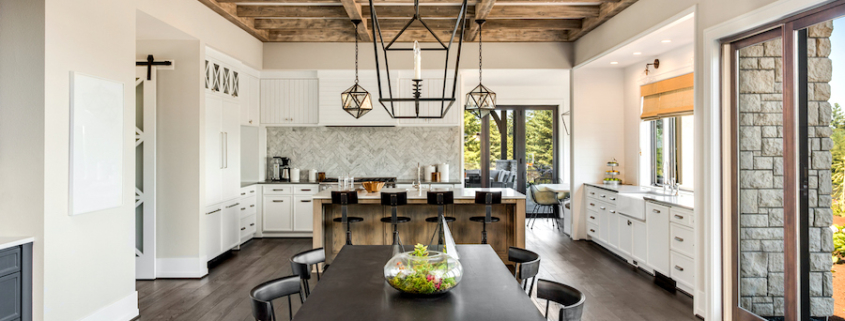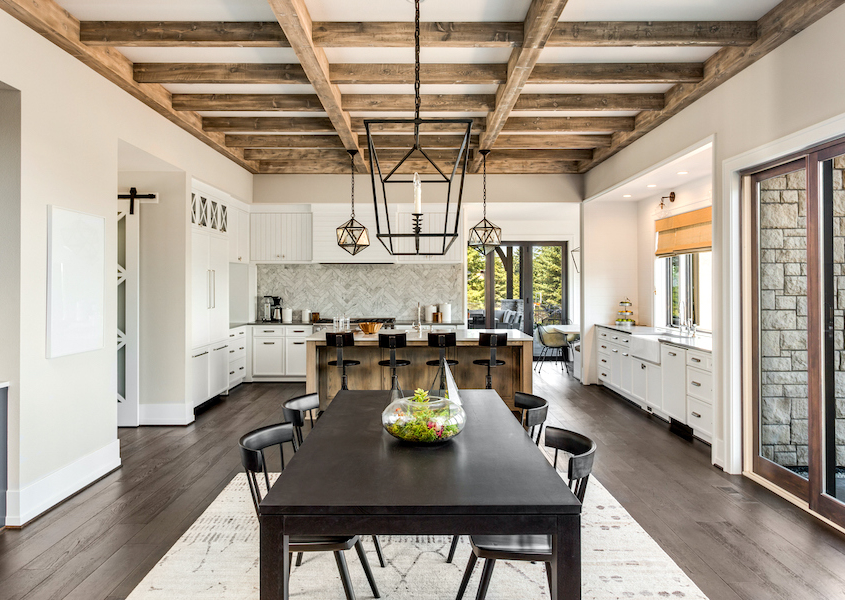How to Qualify for a Bigger Mortgage
Mortgage rates are starting to inch upwards and home prices aren’t slowing down. Whether you want to refinance and build out your current home or buy your next home with a larger lot in mind, homebuyers across the country are figuring out how to qualify for a bigger mortgage.
For many homebuyers, shopping for their next dream home might require a jumbo loan. Other homeowners want to refinance a bigger mortgage to build a rental unit, granny flat, or trade-up for a new home big enough to fit your lifestyle for a few decades.
If you’re looking to stretch your buying power, these strategies can help you afford a bigger mortgage.
Verify Higher Income
Increasing your income might sound like an obvious strategy, but also one that is just out of reach. After all, most of us can’t flip a switch to increase our income on any given day. That said, if you can find ways to show more income, you’ll be able to afford a bigger mortgage.
Employment is only one aspect of qualified income. When you consider presenting more income to a mortgage lender, think of the following revenue streams:
- investment gains, interest, and dividends
- restricted stock units (RSU)
- employee stock purchase plans (ESPP shares)
- rental property income
- spousal support and/or child support
Also, consider any part-time or business income, as long as you’ve been earning for at least two years. What’s more, if you have relatives staying on and paying rent, don’t be shy to include that as rental income. Discuss it with a qualified mortgage broker and learn about your best loan options.
Pay Down Your Debt
Your debt-to-income ratio is one of the biggest factors that mortgage lenders look at when deciding risk. Do what you can to lower your ratio by paying down your debt. Start with consumer credit cards, then consider consolidating loans or restructuring student loan debt.
If you’re carrying multiple credit cards, consider transferring high-rate cards to a 0% credit card or other offers that will reduce your monthly debt obligations. If you carry an auto loan, consider refinancing to lower your monthly payment.
When lenders consider your debt-to-income ratio, your ratio is measured by comparing your monthly debt obligations against your income. For this reason, focus on reducing your monthly payments more than simply paying off a specific loan.
Boost Your Credit Score
Paying down high-rate credit cards and lowering your balances will boost your credit score the fastest. The higher your credit score, the better loan terms you’ll be able to qualify for.
Raising your credit score is a smart strategy that almost always helps you qualify for a bigger mortgage. When you have a credit score above 740, you’ll be offered lower rates, betters terms, and a higher loan amount.
Offer a 20% Down Payment
Putting 20% down on your next home gives you more leverage when it comes to your mortgage payment. When you put 20% down, you automatically won’t have to pay PMI (private mortgage insurance), and you’ll also fall below the 80% loan-to-value ratio that lenders prefer.
As a result, you’ll be offered better loans terms and a lower mortgage rate, which means a lower monthly mortgage payment. When it’s time to close on your new loan, you’ll be able to afford a bigger mortgage since you’ve been able to lower your monthly payment threshold.
Consider an Adjustable-Rate Mortgage
Finally, talk to your mortgage broker about adjustable rates mortgages with a 5/1 term or 7/1 term. Adjustable-rate mortgages typically offer a lower mortgage rate (~0.5%) than a fixed-rate mortgage. Just remember that after the fixed-rate term (5 or 7 years), you’ll face an adjustable-rate loan that will be subject to future mortgages rates.
Adjustable-rate mortgages offer some homebuyers more flexibility, lower mortgage rates, and often you can qualify for a bigger mortgage. Your debt-to-income ratio impacts the size of your mortgage payment (what the lender will approve). And when you apply for an ARM, you’ll have a lower monthly payment than a fixed-rate mortgage, so you’ll be able to afford a bigger mortgage.
What’s Next
Working with an experienced mortgage broker can help you get a bigger mortgage at the best rate. We work with clients at every stage of homeownership. Buying a house with a bigger mortgage doesn’t need to be confusing, and a mortgage broker can help you navigate your best loan options. Our goal is to get you the best mortgage and save you money along the way. Give us a call to get started.



